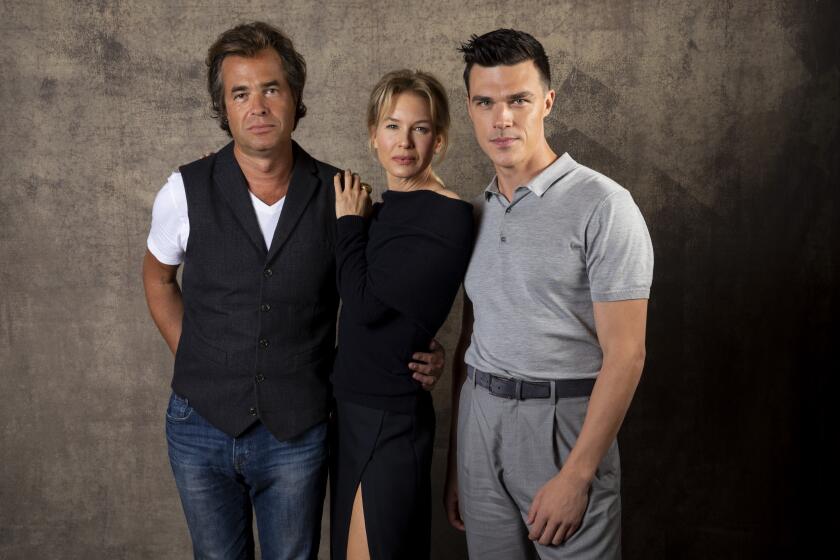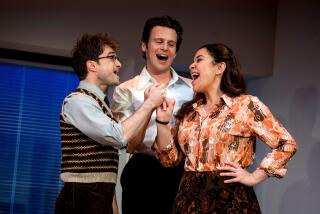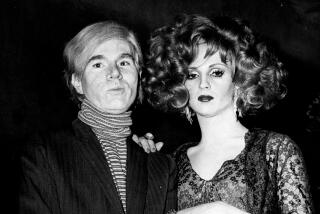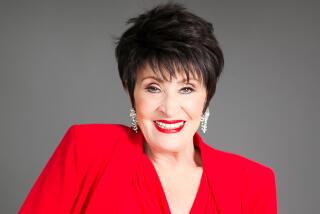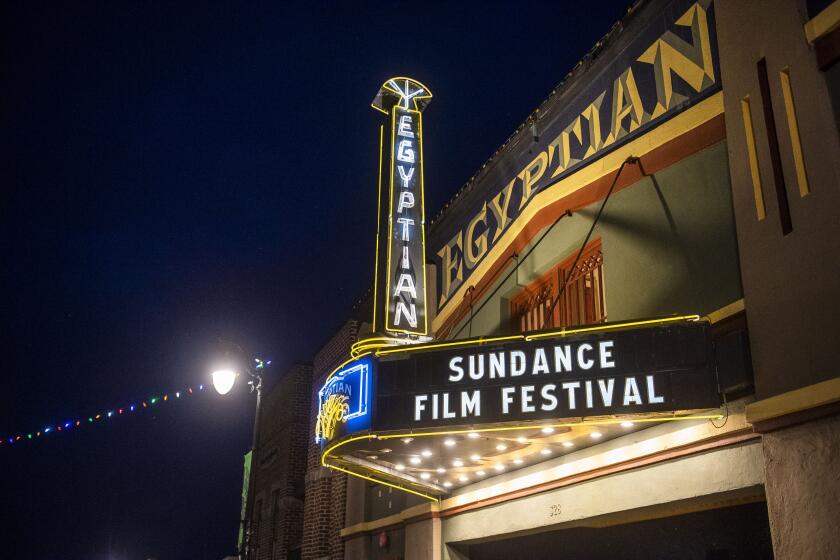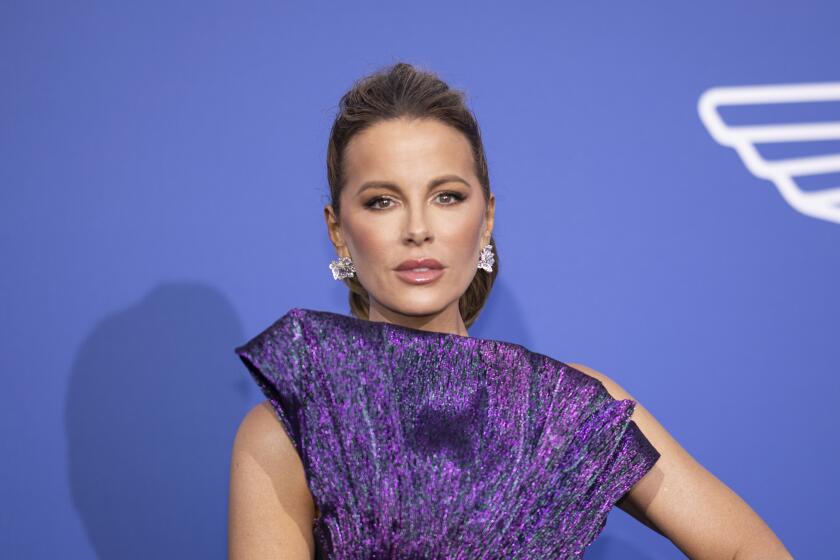The true story behind ‘Judy’ from the woman who worked with Judy Garland
For Rosalyn Wilder, looking after Judy Garland during the Hollywood legend’s 1968 stint at Talk of the Town was a short chapter in a long, star-studded career.
At the time, Wilder was a production assistant working for Robert Nesbitt at the London nightclub, housed in a historic theater that is now the Hippodrome Casino, and her encounters with Garland happened over the singer’s notoriously rocky five-week stint.
Wilder was a Talk of the Town fixture for 20 years, standing in the wings as a long list of iconic figures, including Eartha Kitt and Frank Sinatra, took the stage. So in 2015, when she got a call from producer David Livingstone’s assistant asking her to meet to discuss Garland, Wilder was skeptical.
“I thought, ‘Judy Garland again?’” says Wilder, sitting in the tea room of the Hippodrome Casino, where she still commands VIP treatment despite the location’s significant evolution over time. She adds, “I just thought, ‘Why can’t they let that poor woman rest in peace?’”
But Wilder agreed to meet with Livingstone, who had an idea to adapt Peter Quilter’s stage play “End of the Rainbow” into a film about the tragic period near the end of Garland’s life. He detailed his concept (she remained skeptical) and asked to stay in touch. “End of the Rainbow” doesn’t feature a Rosalyn character, but the producer felt that Tom Edge’s script needed some new real-life elements sprinkled in.
“I wanted the film to be a bigger world, and the answer to that was to make it more authentic,” Livingstone says. “So we tried to find anybody who was involved in the Talk of the Town at that time. When I met her, it just felt like there was a parallel story that did exist.”
Renee Zellweger is triumphant as the great Judy Garland and elevates a standard-issue biopic.
A while later, Wilder got another call from Livingstone asking to send her the script. She agreed, but put off reading it, noting of the producer, “I really couldn’t quite figure out why he kept staying in touch.” As it turned out, Livingstone needed Wilder to read the script because she was in it as one of the central figures in the story. Not only was Wilder surprised by her significant inclusion, she wasn’t sure she approved.
“It’s a bit of a life-changer, isn’t it?” Wilder asks, clearly still incredulous at the situation. “How many people do you know who walk into a cinema and there’s somebody on the screen who’s going to be them? I’m a backstage person. I’m not a front-of-house person.”
After speaking to her son, Wilder agreed, asking the filmmakers to remove a few personal elements of the script that made her uncomfortable. She signed on as a consultant for the film (a job that is paid with a “small fee”) and spent time talking to Renée Zellweger, who plays Garland, and Jessie Buckley, who landed the role of Wilder.
She and Buckley, who recently starred in HBO’s Emmy-winning “Chernobyl” and the indie “Wild Rose,” met several times ahead of filming, including once at the Hippodrome, where Wilder offered the actress a glass of Champagne at noon.
“I’ve never played anyone who’s still alive,” Buckley says. “It was quite a scary first meeting. From talking to her, she was so adamant to be honest about what her memory of Judy was and where she was at that time in her life. And the excitement of being part of that world with the kind of pressure and responsibility to be successful in such a male-dominated environment.
“When Judy and her came together it was a clash of the titans, with Judy breaking down the armor Rosalyn had built up around her and Rosalyn realizing how vulnerable and human this immortal being was.”
Wilder also met with the production designer and the costume designer, and provided photographs, old playbills and looked over storyboards. She also got access to several other people who were part of Garland’s life, including the singer’s former dresser, who spoke about Garland with the filmmakers for the first time in 40 years.
One of the most important artifacts that Wilder unearthed was a recording of one of the Talk of the Town shows made by Garland’s husband Mickey Deans, played in the film by Finn Wittrock. Wilder’s late husband, Burt Rhodes, bandleader at Talk of the Town, had nabbed the tape to prevent Deans from distributing the illegal recording.
“Mickey Deans had microphones underneath the tablecloths,” Wilder remembers. “They did the show and at the end of the show the boys said, ‘Burt, you really need to go and check this out. It’s not legal and we haven’t been paid.’
“He went out and lifted up the tablecloth and there was a microphone and another one and another one. He followed the wires back to this tape recorder and found Mickey Deans.”
“It’s in terrible condition,” Wilder adds of the illicit recording. “You can’t really listen to it. But they took it down to Abbey Road and they digitized it so that Renée could listen to it and understand how Judy interacted with the band and with the audience. So when she did the act, it was sort of based on what had happened on the tape.”
To portray Judy Garland onscreen, Renée Zellweger meticulously studied live recordings and archival footage of the Hollywood icon.
Although the character of Rosalyn Wilder is based on Wilder herself, liberties have been taken with her story and the events. Wilder was tasked with checking on Garland and she did often help urge the singer on stage. She also was present for Garland’s wedding to Deans. But Wilder never went to the Ritz, where Garland was staying, to force the actress into her clothes — a scene Buckley and Zellweger act out in the film.
Still, Wilder recalls, she was around more than she might typically have been during a show because it quickly became clear that Garland could create some issues.
“It became sort of edgy,” Wilder notes. “There were no mobile phones, so they’d ring from the Ritz and say, ‘We’re leaving the Ritz’ and then you had to pray. If she left the Ritz, it didn’t necessarily mean that she was going to turn up [for the show]. That was the problem.”
Wilder feels that while not everything in the film is true to fact, the particular sense of the late ’60s genuinely comes through. And she believes Buckley’s performance reveals how professional women presented themselves in that era, while also revealing what it was like to have the immense task of babysitting a troubled celebrity.
“I think the film is a very good representation of what went on and how it went on,” Wilder says. “It’s a film. It’s a biopic. It’s not meant to be a day-by-day, minute-by-minute, blow-by-blow account of what happened. But I think it’s a very good representation.”
“It was really valuable having her personal stories and the stories about Garland,” says director Rupert Goold. “It was also really helpful for me to meet somebody who was a working woman — and quite a young woman — during the late ’60s. It was still a male environment and for me it was helpful to think about feminism, in a way, during the late ’60s.”
A new film about Judy Garland’s tragic final months of botched performances and addiction struggles stars Renée Zellweger, who talks about portraying the star in “Judy.”
Wilder didn’t keep in touch with Garland after her run at Talk of the Town ended. She just moved on to the next performer and continued doing her job. Only six months later, Wilder and her colleagues received the news that Garland died.
“We were all stunned,” Wilder says. “Not stunned from the point of view that we knew she was in trouble, but at 47 — that’s hardly the way to go. And to be found like that by that ghastly Mickey Deans is just awful. We’ve had people here who have not been well, but that was a big star and we could see how badly Mickey Deans was treating her. You really wanted to get hold of him and go, ‘Go away!’ It was like rubbing salt into a wound. She didn’t need that. She thought she did and she didn’t.”
Looking back, Wilder still isn’t entirely sure why Garland’s story should be told over the dozens of other performers who appeared at Talk of the Town. She has an impressive 11-page list of everyone who played the venue before it closed in 1982. “We could have made movies about a million people,” Wilder says, gesturing to the list. Still, she understands why people are so drawn to Garland, even now, because she herself was drawn to her.
“The thing about Judy Garland that people probably don’t know now, 50 years on, is that she was a legend,” Wilder says. “And she still is a legend. She really was one of the great performers of the 20th century. There was a magic about her. When I would have to get her to go onstage and the lights would come on and she started, she still had that magic.
“I’ve had the enormous good fortune to meet practically anybody and I can’t tell you what it is that they have. If I knew what it was I’d stick it in a bottle and I’d take it three times a day and I’d be one of them. They just have that certain something about them that pulls them away from the crowd.”
More to Read
Only good movies
Get the Indie Focus newsletter, Mark Olsen's weekly guide to the world of cinema.
You may occasionally receive promotional content from the Los Angeles Times.
